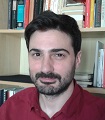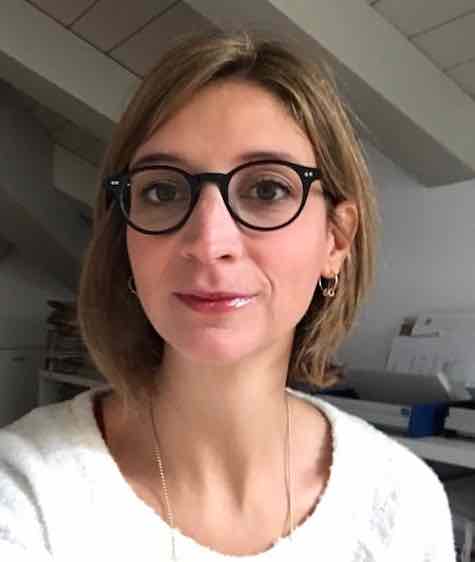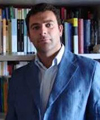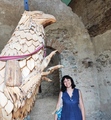Studying at the University of Verona
Here you can find information on the organisational aspects of the Programme, lecture timetables, learning activities and useful contact details for your time at the University, from enrolment to graduation.
Academic calendar
The academic calendar shows the deadlines and scheduled events that are relevant to students, teaching and technical-administrative staff of the University. Public holidays and University closures are also indicated. The academic year normally begins on 1 October each year and ends on 30 September of the following year.
Course calendar
The Academic Calendar sets out the degree programme lecture and exam timetables, as well as the relevant university closure dates..
| Period | From | To |
|---|---|---|
| I SEMESTRE | Oct 3, 2016 | Jan 21, 2017 |
| II SEMESTRE | Feb 27, 2017 | Jun 10, 2017 |
| Session | From | To |
|---|---|---|
| Lingue - SESSIONE INVERNALE | Jan 23, 2017 | Feb 25, 2017 |
| Lingue - SESSIONE ESTIVA | Jun 12, 2017 | Jul 29, 2017 |
| Lingue - SESSIONE AUTUNNALE | Aug 21, 2017 | Sep 23, 2017 |
| Session | From | To |
|---|---|---|
| Lingue - Sessione di laurea invernale | Apr 3, 2017 | Apr 8, 2017 |
| Lingue - Sessione di laurea estiva | Jul 10, 2017 | Jul 15, 2017 |
| Lingue - Sessione di laurea autunnale | Dec 18, 2017 | Dec 21, 2017 |
| Lingue - sessione di laurea invernale | Mar 23, 2018 | Mar 29, 2018 |
| Period | From | To |
|---|---|---|
| FESTA DI OGNISSANTI | Nov 1, 2016 | Nov 1, 2016 |
| FESTA DELL'IMMACOLATA CONCEZIONE | Dec 8, 2016 | Dec 8, 2016 |
| Vacanze Natalizie | Dec 23, 2016 | Jan 7, 2017 |
| Vacanze Pasquali | Apr 14, 2017 | Apr 18, 2017 |
| Festa della Liberazione | Apr 25, 2017 | Apr 25, 2017 |
| Festa dei Lavoratori | May 1, 2017 | May 1, 2017 |
| FESTA DEL SANTO PATRONO SAN ZENO | May 21, 2017 | May 21, 2017 |
| Festa della Repubblica | Jun 2, 2017 | Jun 2, 2017 |
| Vacanze Estive | Aug 14, 2017 | Aug 19, 2017 |
| Description | Period | From | To |
|---|---|---|---|
| ANNUALE | ANNUALE | Oct 3, 2016 | Jun 10, 2017 |
Exam calendar
Exam dates and rounds are managed by the relevant Foreign Languages and Literatures Teaching and Student Services Unit.
To view all the exam sessions available, please use the Exam dashboard on ESSE3.
If you forgot your login details or have problems logging in, please contact the relevant IT HelpDesk, or check the login details recovery web page.
Should you have any doubts or questions, please check the Enrollment FAQs
Academic staff
 valentina.adami@univr.it
valentina.adami@univr.it
 paola.bellomi@univr.it
paola.bellomi@univr.it
 daniele.beltrame@univr.it
daniele.beltrame@univr.it
 paolamaria.caleffi@univr.it
paolamaria.caleffi@univr.it
 riccardo.cella@univr.it
riccardo.cella@univr.it
 elisa.dallarosa@univr.it
elisa.dallarosa@univr.it
 sara.dattoma@univr.it
sara.dattoma@univr.it
 mariangela.lando@univr.it - marilando771@gmail.com
mariangela.lando@univr.it - marilando771@gmail.com
 stefania.montemezzo@univr.it
stefania.montemezzo@univr.it
 chunye.niu@univr.it
chunye.niu@univr.it
 alessia.polatti@univr.it
alessia.polatti@univr.it
 dora.renna@univr.it
dora.renna@univr.it
 fabioantonio.scrignoli@univr.it
fabioantonio.scrignoli@univr.it
 tania.triberio@univr.it
tania.triberio@univr.it
 sonia.trovato@univr.it
sonia.trovato@univr.it
Study Plan
The Study Plan includes all modules, teaching and learning activities that each student will need to undertake during their time at the University.
Please select your Study Plan based on your enrollment year.
1° Year
| Modules | Credits | TAF | SSD |
|---|
1st foreign language2nd foreign language1st foreign literature and cultureGerman literature and culture 1
2nd foreign literature and cultureGerman literature and culture 1
2° Year activated in the A.Y. 2017/2018
| Modules | Credits | TAF | SSD |
|---|
Italian literature and culture
Geography of communication and international trade
Modern and Contemporary Economic History
Theory and Techniques of communication
1st foreign language2nd foreign languageFirst language foreign literature and culture or a related courseEnglish literature and culture 2
German literature and culture 2
Spanish literature and culture 2
Second language foreign literature and culture or a related courseEnglish literature and culture 2
German literature and culture 2
Spanish literature and culture 2
3° Year activated in the A.Y. 2018/2019
| Modules | Credits | TAF | SSD |
|---|
Comparative and European Public law
Principles of international marketing
1st foreign language2nd foreign language| Modules | Credits | TAF | SSD |
|---|
1st foreign language2nd foreign language1st foreign literature and cultureGerman literature and culture 1
2nd foreign literature and cultureGerman literature and culture 1
| Modules | Credits | TAF | SSD |
|---|
Italian literature and culture
Geography of communication and international trade
Modern and Contemporary Economic History
Theory and Techniques of communication
1st foreign language2nd foreign languageFirst language foreign literature and culture or a related courseEnglish literature and culture 2
German literature and culture 2
Spanish literature and culture 2
Second language foreign literature and culture or a related courseEnglish literature and culture 2
German literature and culture 2
Spanish literature and culture 2
| Modules | Credits | TAF | SSD |
|---|
Comparative and European Public law
Principles of international marketing
1st foreign language2nd foreign language| Modules | Credits | TAF | SSD |
|---|
Legend | Type of training activity (TTA)
TAF (Type of Educational Activity) All courses and activities are classified into different types of educational activities, indicated by a letter.
Comparative and European Public law [Cognomi M-Z] (2018/2019)
Teaching code
4S002938
Teacher
Coordinator
Credits
9
Language
Italian
Scientific Disciplinary Sector (SSD)
IUS/21 - COMPARATIVE PUBLIC LAW
Period
I semestre dal Oct 1, 2018 al Jan 12, 2019.
Learning outcomes
The course focuses on public comparative law and on EU law.
It also aims to analyse the different legal traditions of the world in their interrelations with constitutional designs, as well as on the regulation of economic actvities having recourse to the comparative method.
The course aims at making students capable of assessing the several issues arising in a globalised world, where economic, legal, as well as political factors interact.
Program
The course will be divided into three parts:
1. Comparative method and constitutional legal studies. Comparative law, economics, and the promotion of legal change. The legal systems of the world. Legal systems, legal families, ethnocentrism and Euro-Atlantic constitutionalism: mutual interferences and legal borrowings. Civil law, Common law, Soviet Law, African Law, Mixed jurisdictions, Islamic Law, Hindu Law, Hebrew Law, Far Eastern legal systems, The Russian area.
2. An introduction to Constitutional Comparative studies: constitutions, formation and alteration of the constitutions, frame of government, federalism and regionalism, constitutional litigation. EU law.
3. Public law for economics. The influence of globalization and of the EU law over public policies.
The Students that will attend the course:
a) lecture notes;
b) M. Nicolini, L'altra common law of the land. La famiglia giuridica mista dell'Africa australe, BUP, Bologna, 2016;
c) S. Cassese (cur.), La nuova costituzione economica, Laterza, Roma-Bari, ult. ed. (chapters I, II, III, V, VII, VIII, IX)
Students that will not attend the course:
G. Pegoraro, A. Rinella, Sistemi costituzionali comparati, Giappichelli, Torino, 2017 (chapters. I, II, III, IV, V, VI, VIII, X).
Erasmus students may also choose the following program:
1) J. Husa, A New Introduction to Comparative Law, Bloomsbury, London, 2015;
2) M. Tushnet, Advanced Introduction to Comparative Constitutional Law, Edward Elgar, Cheltenham, 2014.
| Author | Title | Publishing house | Year | ISBN | Notes |
|---|---|---|---|---|---|
| L. Pegoraro, A. Rinella | Costituzioni e fonti del diritto | Giappichelli | 2018 | Studenti frequentanti: solo i cap. I, II, III, IV | |
| L. Pegoraro | Diritto pubblico e sistemi costituzionali comparati Itinerari di apprendimento e di verifica | Giappichelli | 2018 | Contiene le domande a risposta multipla per esercitarsi ai fini della parte scritta dell'accertamento. Gli items da utilizzare saranno indicati nella piattaforma e-learning di Ateneo | |
| Matteo Nicolini | L'altra Law of the Land. La famiglia giuridica "mista" dell'Africa australe (Edizione 1) | Bolonia University Press | 2016 | Studenti frequentanti: solo i Capp. I, II, III | |
| L. Pegoraro, A. Rinella | Sistemi costituzionali comparati | Giappichelli | 2017 | Studenti non frequentanti: solo i capp. I, II, III, IV, V, VI, VIII, X. |
Examination Methods
Students attending the course: written examination (multiple choice) followed by an oral examination.
Students not attending the course: there will be both a written text (multiple choice) and an oral examination.
ERASMUS students are invited to to contact professor Nicolini (matteo.nicolini@univr.it) at the beginning of the course in order to set teaching methods and assessment tests.
Type D and Type F activities
To discover all the teaching activities accredited by the foreign teaching college click here
Career prospects
Module/Programme news
News for students
There you will find information, resources and services useful during your time at the University (Student’s exam record, your study plan on ESSE3, Distance Learning courses, university email account, office forms, administrative procedures, etc.). You can log into MyUnivr with your GIA login details: only in this way will you be able to receive notification of all the notices from your teachers and your secretariat via email and soon also via the Univr app.
Student login and resources
Gestione carriere
Assegnazione tutore
Attività accreditate D/F
Calendario didattico dettagliato
Cambio lingua curriculare
Competenze informatiche
Competenze linguistiche (prima e seconda lingua)
Competenze linguistiche in triennale (terza lingua CFU F)
Compilazione del piano didattico
Corso di Lingua portoghese
Erasmus+ e altre esperienze all'estero
Linguistic training CLA
Presentazione dei corsi di studio e Open day
Graduation
List of theses and work experience proposals
| Stage | Research area |
|---|---|
| PROGETTO MAMBRINO Stage per bibliografia | Various topics |
Saperi minimi
Stage e tirocini
Nel piano didattico della laurea triennale in Lingue per il turismo e il commercio internazionale (L12) è previsto un periodo di stage obbligatorio (CFU 6) in organizzazioni imprenditoriali.
Le attività di stage sono finalizzate a far acquisire allo studente una conoscenza diretta in settori di particolare interesse per l’inserimento nel mondo del lavoro e per l’acquisizione di abilità professionali specifiche.
Le attività di stage sono svolte sotto la diretta responsabilità di un singolo docente presso studi professionali, enti della pubblica amministrazione, aziende accreditate dall’Ateneo veronese.
I crediti maturati in seguito ad attività di stage saranno attribuiti secondo quanto disposto nel dettaglio dal “Regolamento d’Ateneo per il riconoscimento dei crediti maturati negli stage universitari” vigente.
- Tutte le informazioni in merito agli stage per futuri studenti sono disponibili alla pagina Stage e tirocini.
- Tutte le informazioni in merito agli stage per studenti iscritti sono pubblicate in MyUnivr - come fare per - stage e tirocini.
- Tutte le informazioni in merito agli stage per le aziende sono disponili alla pagina Stage e tirocini per azienze.
Ulteriori informazioni al seguente link https://www.univr.it/it/i-nostri-servizi/gestione-carriere-studenti-lingue-e-letterature-straniere/stage-e-tirocini-lingue-e-letterature-straniere


 +39 045802 8409
+39 045802 8409

























































